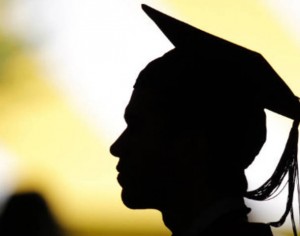Bankruptcy questions from college grads
South Florida bankruptcy attorneys Bigge & Rodriguez, have seen an increase among younger clients seeking debt relief. Barely out of college, these young adults are penniless and up to their eyeballs in student loan debt.
Enrollment in colleges has risen steadily since the economic downturn, and more students are investing in their education as a means for achieving higher wages when they graduate. Unfortunately, college tuition and associated costs have also risen, forcing families to take out more student loan money. Yet, when college students graduate, very few are able to land jobs that will enable them to pay off their student loan debt, forcing them to consider whether personal bankruptcy is an option.
Many people are dealing with a job loss, salary reduction or life event that prevents families from paying for a college education or loan repayment. Even if a college grad does land a decent job, the student loan debt is a tremendous burden, preventing qualification for a home loan and essential living expenses.
Can Student Loan Debt be Discharged?
Under the current bankruptcy laws, student loans are not dischargeable unless the Debtor can prove an undue hardship. Most of our younger clients cannot meet this burden. On a brighter note, Bigge & Rodriguez have had success preventing the accrual of penalties and late charges in Chapter 13 bankruptcies. Additionally, once a Chapter 13 bankruptcy is filed, the Debtor may suspend the student loan payments during the pendency of the Chapter 13. However, there are consequences; interest on the student loans will continue to accrue. Bankruptcy laws and case studies are constantly updated. Consult with a bankruptcy attorney that knows this area of practice.

